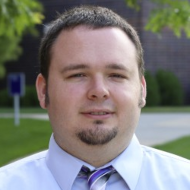Booster Club activities involving evolution not infrequently attract people with questions about my views on the interplay between religion and science education, specifically with respect to what should be taught in the science classroom, and how. Some people experience a substantial inner controversy between religion and science. For example, I once spoke with a homeschooling parent who wasn’t sure which “version of events” to teach. This individual, like many, essentially saw religion and science as equivalent categories, not realizing that there is a major difference in how we come to know what is known under each paradigm.
I have zero intention of challenging a religious conviction for the sake of science. People don’t like having their religious beliefs challenged, especially in public by someone they just met. Instead, I simply acknowledge that they are feeling an obvious conflict between their religious paradigm and the scientific paradigm. I encourage them to give their child a broader experience, and perhaps broaden their own understanding. I tell them that if they focus on how we come to know what we know in each area, we stay true to that body of knowledge, and we can be enriched by that study. Religion is part of the human experience and should not be discounted because there exists a contradictory scientific account. We do not want to reinforce a sense of conflict between science and religion; instead we want to acknowledge that we recognize that people have their own belief systems. Dialogue is impossible if people feel disrespected or threatened. We can, however, respectfully say that scientific knowledge is “science” for a reason and is, therefore, the appropriate body of knowledge to teach in a science classroom. A comment I often use that tends to go over well: “I wouldn’t want my pastor to teach physics and I doubt that I want my physics teacher teaching religion.”
My most jarring encounter with a participant’s religious convictions happened in rural northwest Iowa—as it happens, in a conservative area represented in Congress by Steve King. One man, after observing from a distance, and questioning me extensively about whether both the scientific and religious views should be taught in the science classroom, asked me: “What religion are you?” Answering this question very much changes a conversation, and it puts the SBC leader or volunteer in an incredibly uncomfortable situation. This is one of those questions for which there just may not be a correct answer. You might respond by identifying your religion, only to have the questioner make an appeal to your religion’s teachings. Or, you might have the “wrong” religion for the area. If you don’t have a religion, that’s another possible “wrong answer.” Above and beyond these traps, there’s the simple fact that this question is just plain rude.
How did I respond in this case? First of all, while engaging with this person, I moved away from the rest of the volunteer group and our exhibit table. This way, our conversation was not a distraction to the others at the table and didn’t make them feel uncomfortable. Then I said that that my intention was not to have a religious discussion, but rather to discuss the scientific principles relating to the topics on our table, and that my religious affiliation was not pertinent to the discussion. I then asked him if he wanted to return to the activity or move on. He chose to return to the table and participate in the activity.
There was no easy way out of this line of conversation—and I suspect that was part of the questioner’s intent. However, by avoiding conflict, keeping on task, and containing the situation, I felt confident that I’d responded effectively to his invasive line of questioning.
Maintain the No-Conflict Approach
The social controversies that arise around climate change and evolution definitely show up”at Booster Club events. There are different possible solutions, but in my experience, one thing is clear. By expressing respect and maintaining a non-confrontational approach, these situations turned out better than they would have if I had been more direct and confrontational, or less sensitive to other people’s emotional needs. The individuals who arrived with inner conflicts left our exhibit with confidence that we respected their beliefs, but that we were also true to our purpose and true to the principles of science we were there to represent. In this manner, we established comfort, trust, and a better sense of our fit within the community. The no-conflict approach has been a strong tool to help me grow my club, and to help my club serve my region’s needs.

